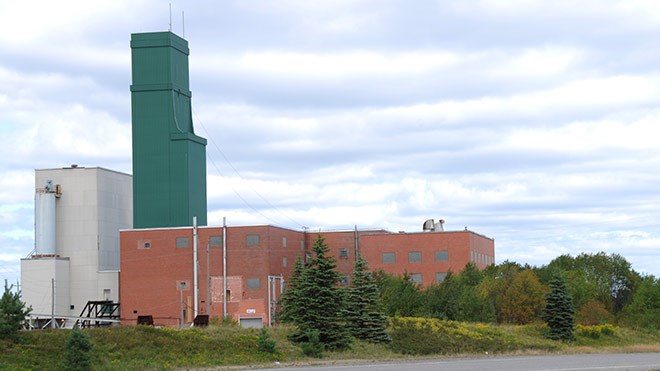The earthquake and aftershock many felt across Greater Sudbury Sunday evening was mining-related, says the Ministry of Natural Resources.
The first occurred at 5:37 p.m. and registered at 3.3 magnitude, the second occurred 12 minutes later at 5:49 p.m. and registered at 3.2 magnitude.
According to the MNR, the quakes originated at the coordinates 46.3 N, 80.8 W, which is roughly 30 km southeast of Sudbury, close to Estaire.
Vale spokesperson Angie Robson said the earthquake's epicentre was between 500 and 800 feet north of Vale's Creighton Mine in Lively.
“I think it's fair to say it could be related to the operations there,” she said. “Mining isn't an exact science, and from time to time unexpected events like the one last night can occur.”
Robson said micro-seismic events are common around mining operations, but stronger quakes that are felt in the community are much more rare.
“We have a lot of things in place to prevent these higher magnitude events from happening,” she said.
Vale uses special detonators meant to minimize rock vibrations when blasting, and backfills areas after blasting to limit rock movement.
At its lower levels Creighton Mine has extra ground support to ensure workers' safety, Robson said.
Sunday's seismic event occurred during a shift change, but Vale halted its operations to err on the side of caution.
Robson said mining operations resumed with the Monday morning shift, and there was no damage reported to the mine.
The Ministry of Natural Resources has reported the earthquake and aftershock also did not cause any damage to community infrastructure.
Laurentian University engineering professor Peter Kaiser said blasting is not the cause of seismic events from mining, but can sometimes be the trigger.
Earthquakes happen when rocks, which are under constant pressure, give in.
“We're straining the rock continuously as we excavate, and at some point something can give, even if it's not during a blast,” he said.
Kaiser said Sudbury has experienced seismic events much stronger than Sunday's earthquake.
“An event like this, you might feel it at the surface,” he said. “But human beings are extremely sensitive instruments. The smallest vibration can be noticed.”
Join Sudbury.com+
- Messages
- Post a Listing
- Your Listings
- Your Profile
- Your Subscriptions
- Your Likes
- Your Business
- Support Local News
- Payment History
Sudbury.com+ members
Already a +member?
Not a +member?
Sign up for a Sudbury.com+ account for instant access to upcoming contests, local offers, auctions and so much more.
